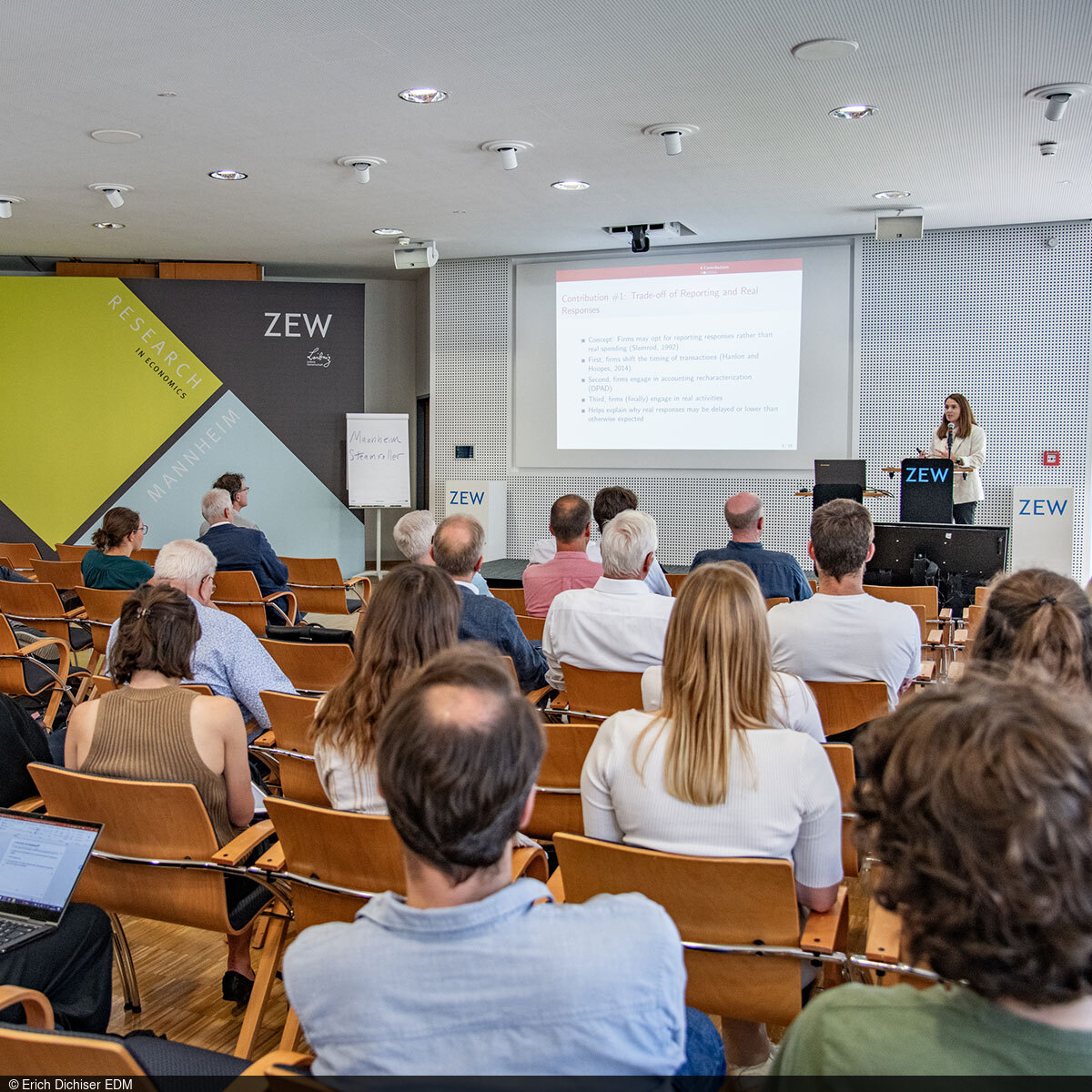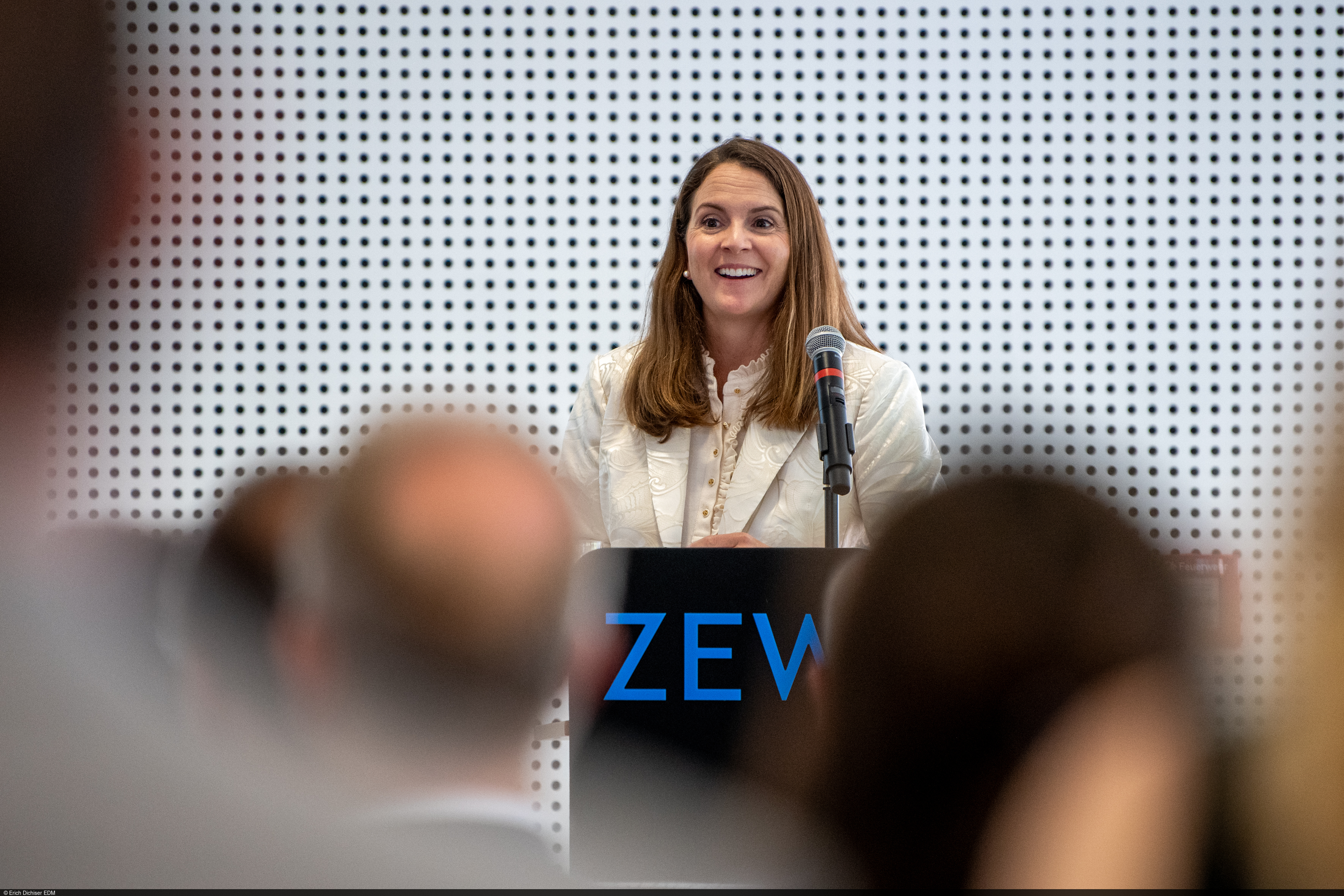Tax Conference Celebrates Anniversary
ConferencesMannheimTaxation Annual Conference Held at ZEW for the Tenth Time
The MannheimTaxation Annual Conference, organised by ZEW Mannheim and the University of Mannheim, marked its tenth edition in September 2023. The milestone event was a resounding success. The conference coincided with the recent extension of the Leibniz ScienceCampus, providing additional cause for jubilation. Over 80 participants from around the world engaged in discussions during twelve presentations and two poster sessions, covering 43 current works in the field of tax research. The keynote speakers were Professor Joel Slemrod from the University of Michigan and Professor Rebecca Lester from Stanford University.
Tax research at ZEW and the University of Mannheim enjoys a high reputation. Both institutions collaborate closely within the Leibniz ScienceCampus MannheimTaxation, exploring how a sustainable tax system can be designed to address new economic and societal challenges at the national, European, and global levels.
Challenging traditional models in research
In his presentation, Professor Joel Slemrod addressed the fundamental developments in the field of tax research. He discussed the importance of consistently questioning and, when compelling evidence arises, discarding traditional models and schools of thought in research. In particular, he emphasised the role of established scholars in maintaining old thought patterns in the face of new evidence. Illustrating this with four established results in tax research, he explored whether, as an established and experienced researcher, he would be swayed by new study results in each case. Among other topics, he addressed theoretical models of tax evasion, the (lack of) progressivity of the US tax system, the use of randomised field studies for research purposes, and the question of whether economists always pursue the truth.
How do companies respond to taxation?
Professor Rebecca Lester highlighted selected examples to demonstrate how the unique perspective of tax accounting contributes to a better understanding of the real economic decisions of companies. Drawing from a recent US study, she revealed that firms respond to a tax increase not only through actual adjustments but also by strategically timing and accounting for their activities. Conversely, the interpretation of accounting standards or regulations on country-by-country reporting influences real activities, such as R&D expenses and, consequently, innovation activities. Professor Lester emphasised the crucial role of understanding accounting responses in current initiatives on global or US minimum taxation and environmental taxation.
About the ScienceCampus MannheimTaxation
The ScienceCampus MannheimTaxation is a joint initiative of ZEW Mannheim and the University of Mannheim. Founded in 2014, MannheimTaxation has contributed significantly to establishing Mannheim as an internationally recognised centre for tax research. Numerous researchers in Mannheim and Heidelberg are working on current issues regarding corporate and private taxation, public finance and tax law. The ScienceCampus model is a Leibniz Association initiative to promote strong and visible cooperation between Leibniz member institutions and universities, as well as to establish complementary local research partnerships. The goal is to promote research in a field while advancing its individual topics of research. The networks associated with MannheimTaxation complete high-quality research, further interdisciplinary cooperation in research, projects and methods, increase the visibility of participating research facilities and improve their research profile.



